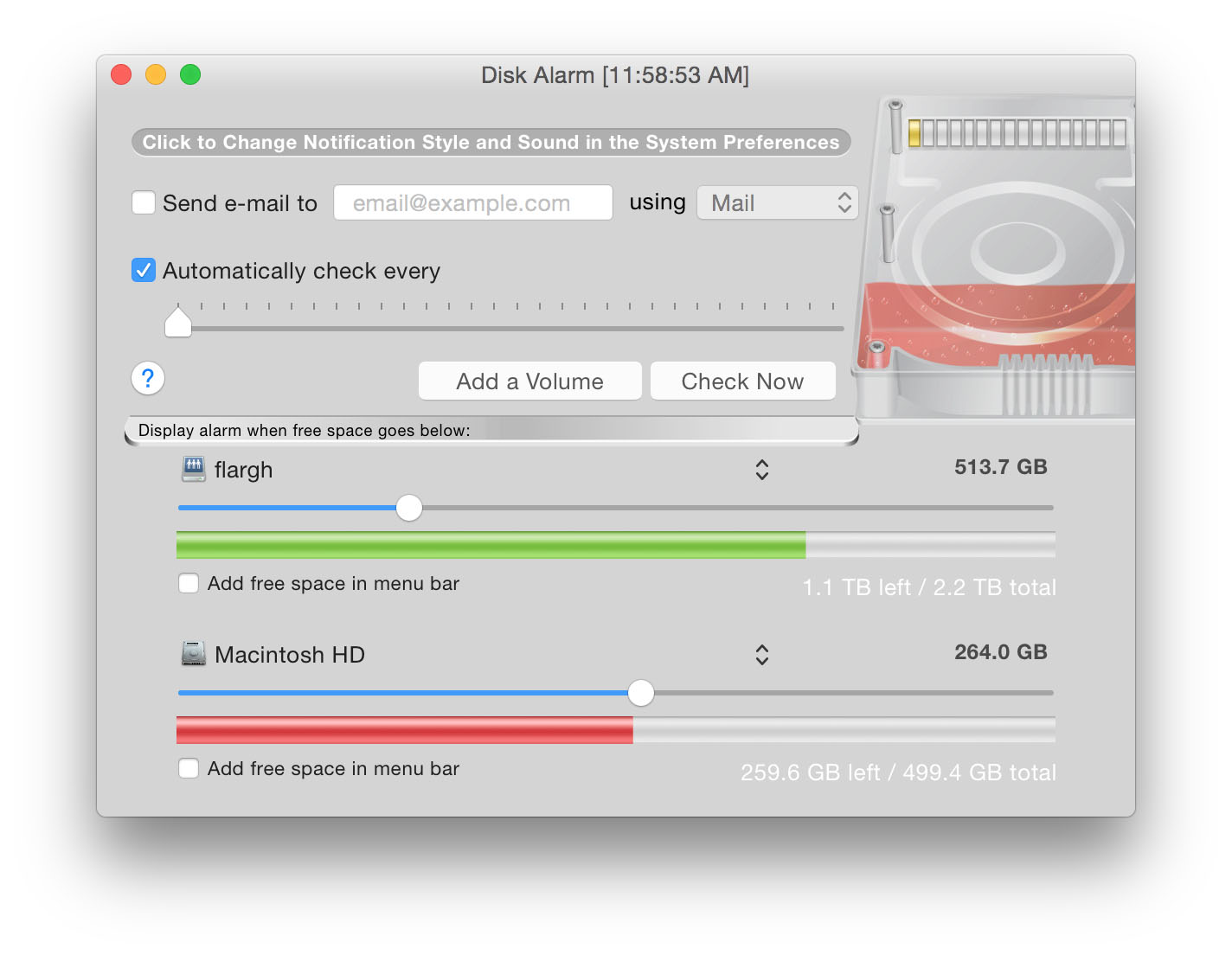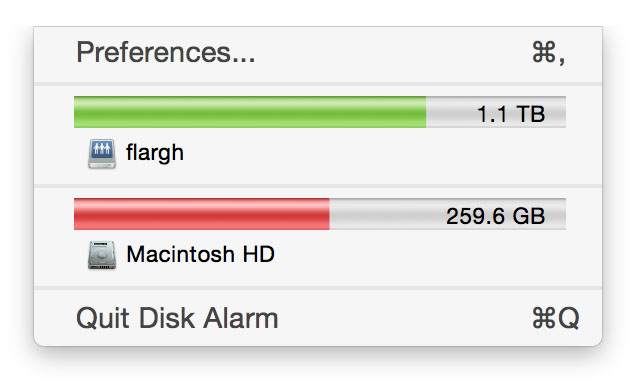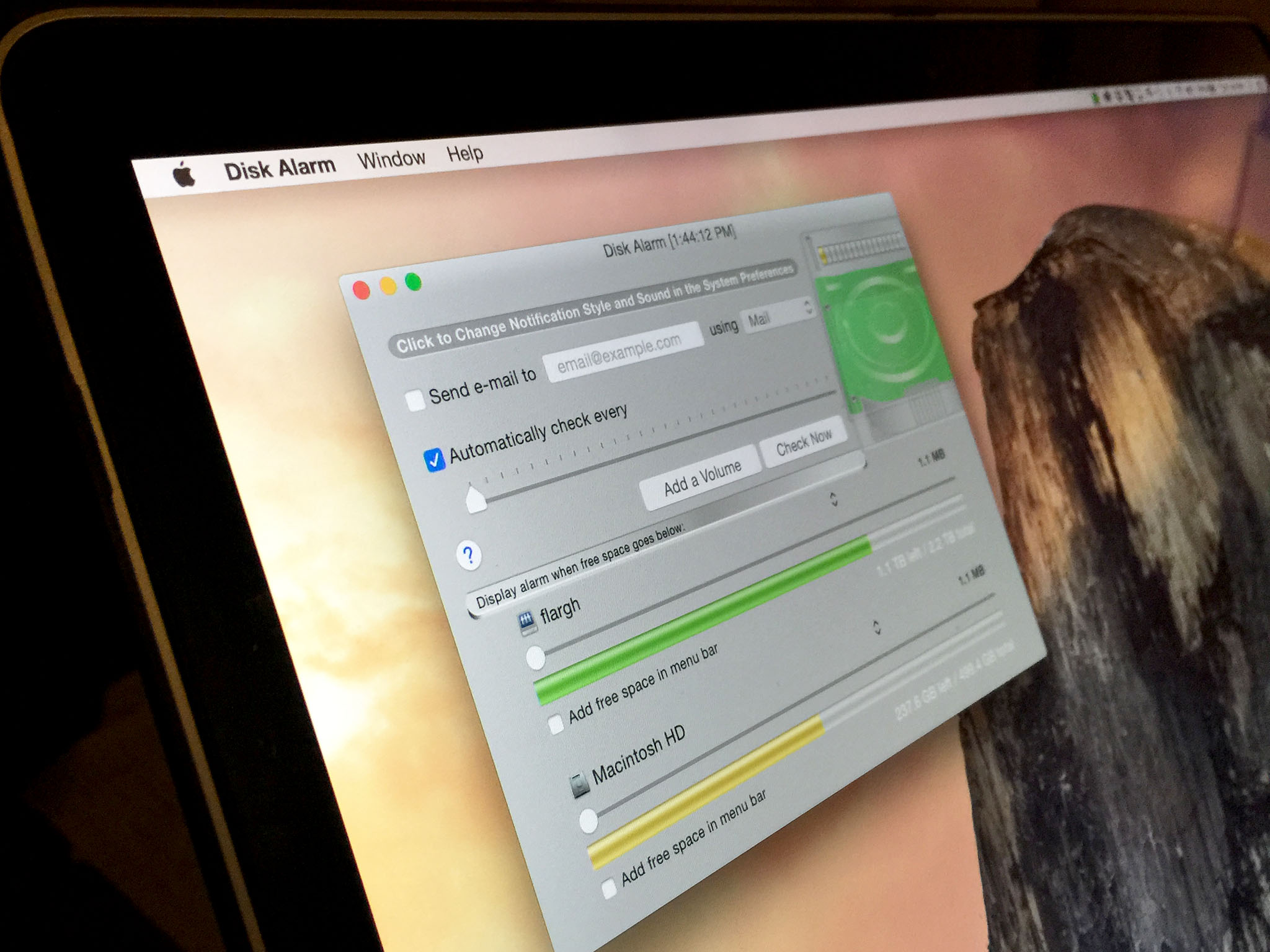"Your startup disk is full."
If you've ever gotten that error message on your Mac, you know what a headache it can be. It can keep your Mac from running, at least until you've moved or deleted enough files for it to work again. A utility called Disk Alarm can help you head off disk space problems before you're in a crisis.
Running out of disk space can be a real drag. At worst it'll keep your Mac from working at all; it can also cause the Mac to slow way down. Generally speaking, it's always a wise idea to keep at least 10 percent of your boot volume free at any given time, since OS X sometimes needs scratch space on the disk for swap files and other content; more than that is good if you can manage it.
As we're increasingly working on Macs that use SSDs with more limited storage space than the massive hard drives we had become accustomed to, running out of space can be a real problem for many of us. Even on "big" drives used on servers and media workstations, running out of space can be a serious issue. What to do?
Disk Alarm, available for download from the Mac App Store, is a very simple app: You run it and it'll warn you before space becomes a problem. You tell Disk Alarm how much space is too little — a slider lets you select how much or how little of the available space will set off the warning.
What's more, Disk Alarm works with any mounted volume on your desktop. It doesn't need to be a local hard drive — it can be a server volume or a network attached storage device. Any mounted volume on your Mac's desktop can be configured for Disk Alarm to keep an eye on.

If you're not in front of your computer at the time, you can also configure Disk Alarm to ping you by e-mail; helpful if you're away from your desk but still have a phone or other internet-connected device handy. At present, Disk Alarm supports the Mail app included with OS X, Mailplane and Sparrow.
Disk Alarm enables you to change the frequency of the checks from one to 120 minutes, so it doesn't constant hammer your CPU or your drive checking for status changes. The idea is just to be able to give you a heads-up before the problem manifests in such a way to shut you down.

Disk Alarm appears in the menu bar and the Dock. If any volumes have hit their minimum free space limit, the icon goes from green to red. Clicking the menu bar item reveals a menu with visual indicators for any and all volumes that Disk Alarm is tracking.
There's a lack of documentation built in to the app, but it's simple enough to figure out without too much trouble. Disk Alarm was recently updated with support for OS X Yosemite, including dark menu bar mode. I'd also like to see Disk Alarm note device names for remote volumes, which can sometimes be similarly named.
The good
- Simple visual indicators help you determine if you're running out of disk space
- Will e-mail you for when you're away from the computer
- Customizable check frequency and volume free space indicator
The bad
- Lack of documentation
The bottom line
Obviously Disk Alarm isn't a utility that everyone needs, but if you're looking for an easy to use way of making sure you're not running out of disk space on any critical drives or network volumes, Disk Alarm offers you a handy way to keep track.
- $3.99 - Download now


